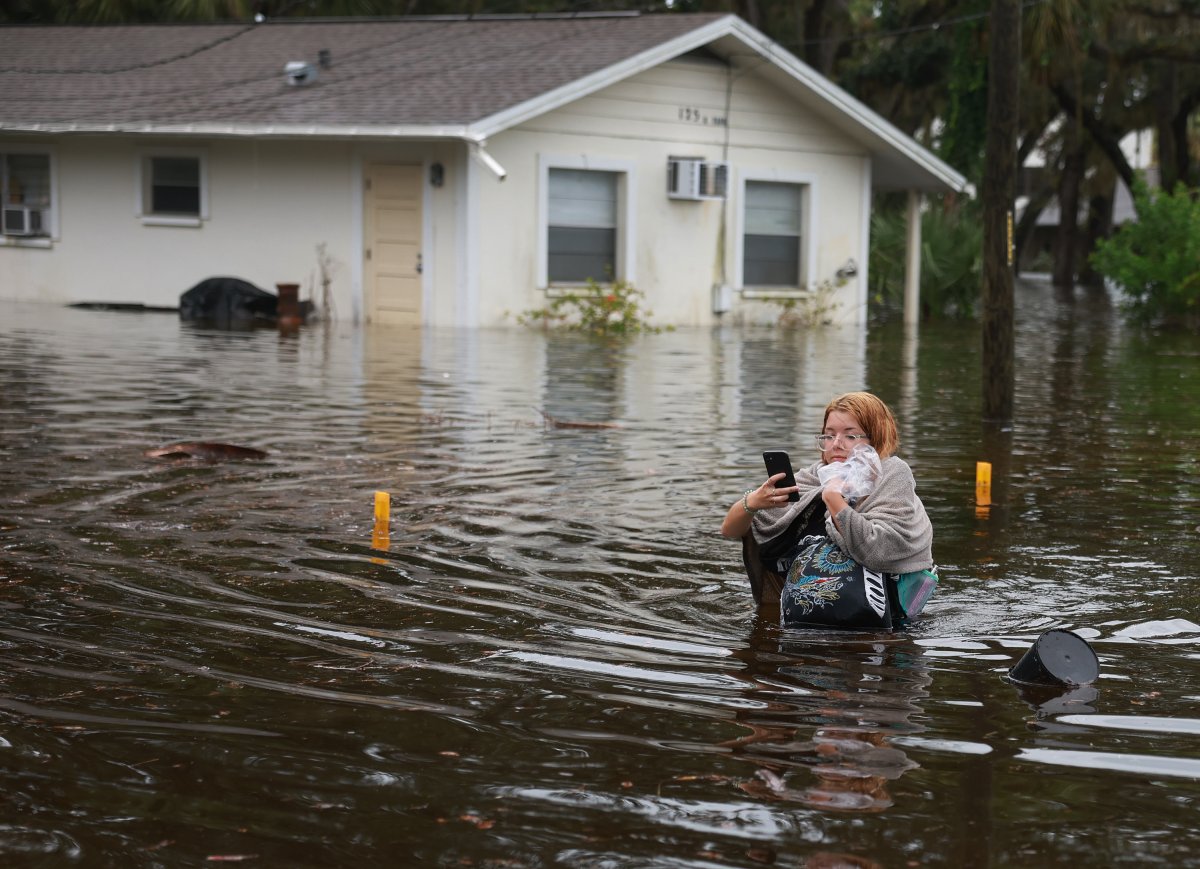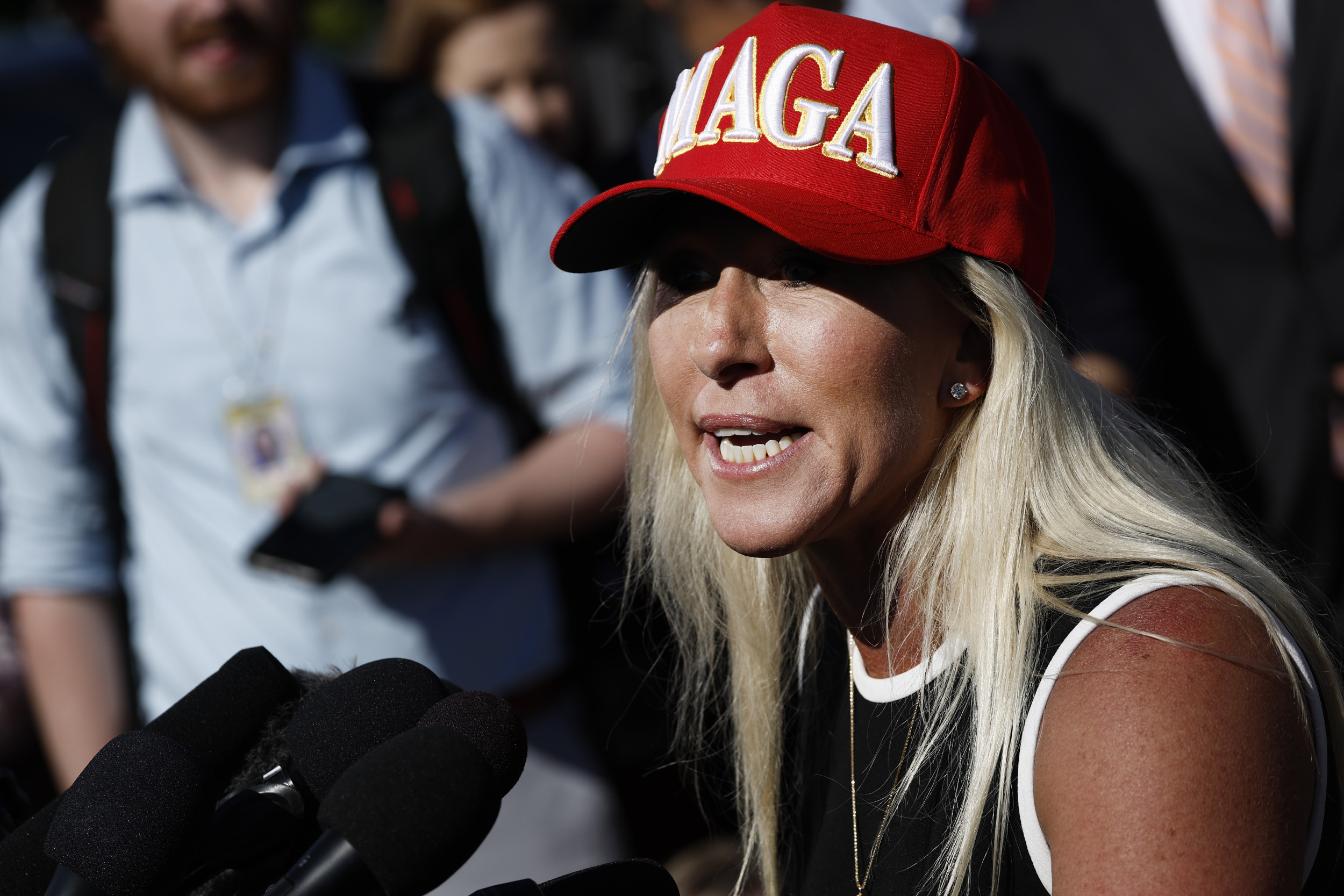Florida's skyrocketing property insurance premiums are expected to continue rising, according to a new report, despite already being among the highest in the country.
Residents of the Sunshine State currently pay on average more than $4,200 per year for home insurance, triple the national average of $1,700, according to data from the Insurance Information Institute (Triple I).
Research by Karen Clark & Co. (KCC), a Boston-based risk assessment and management firm, found that extreme weather events like hurricanes, which are frequent in Florida and are expected to become more severe with climate change, will continue to bring up the cost of reinsurance in the state.
This will also happen because construction costs—which are taken into consideration when determining how expensive it would be to rebuild a home once destroyed—have risen by a staggering 40 percent since 2017.

But that's not all. Another factor causing insurance premiums in Florida to climb is the excess litigation going on in the state.
While the state represents about 7 percent of the U.S. homeowners' insurance market, Florida produces 75 percent of all litigation from homeowners, Charles Nyce, department chair and a Dr. William T. Hold associate professor of risk management and insurance at Florida State University, told Newsweek.
According to the KCC report, this is the only aspect of the unfolding insurance crisis the Florida legislature can directly address, and one that policies in the state are already targeting.
"The Florida legislature cannot control the hurricane and severe weather risk any more than it can control the ever-increasing costs of construction," the report read. "These factors will continue to influence future homeowners premiums, and it is unlikely these costs will go down."
On the other hand, the company added that "already enacted legislation should have a major impact on excess litigation in Florida, and therefore, significantly mitigate future premium increases."
This means that premiums could have been even higher—and possibly justify Florida lawmakers' declared intentions of not addressing the ongoing insurance crisis.
Senate Banking and Insurance Chairman Jim Boyd, a Republican, recently said that lawmakers "got a lot done" already and he does not expect them to make major property-insurance changes during the 2024 legislative session.
Nyce told Newsweek that he agrees in the short term—the next 12 to 18 months—Floridians are going to see higher premiums.
"So premiums go up when rates increase—which is what was happening in the last few years—and when inflation hits rebuilding costs—which we are seeing a lot of right now," he said.
Yanjun (Penny) Liao, an economist and researcher at Resources for the Future (RFF), told Newsweek that she also generally agrees "with the report's basic conclusion and the contributing factors it cites."
"I think reinsurance is likely to be the most important because of Florida's insurance market structure," she said.
Florida's insurers "tend to be small and local, which means that they don't diversify across states, they don't hold a lot of capital, and have to rely heavily on reinsurance to pay claims in catastrophic loss events," Liao explained.
That's why reinsurance costs have been increasing dramatically in Florida, rising by 30 to 40 percent from January to July this year, according to a Gallagher Re's report.
"These increases will most likely be passed on to consumers," said Liao. "On the other factors—while construction cost is going up quite fast in recent years, I am not sure it's uniquely a Florida story; and yes, litigation cost is likely to go down and might help offset some of the increase."
According to Liao, there is no immediate solution to lower the impact of the reinsurance cost increase.
"Reinsurance is a global industry not subject to any state's regulation," she said. "The potential solution would be to find alternative and possibly cheaper ways for insurers to transfer the risk than private reinsurance."
This, Liao said, could mean a stronger backstop provided by the Florida Hurricane Catastrophe Fund (FHCF)—the public reinsurance program in the state—"but with the caveat that the FHCF is not perfect because it pools correlated risk in a single state."
Other potential solutions, which have not been fully tested, are new financial instruments such as catastrophe bonds, reinsurance sidecars, collateralized reinsurance that transfer the risk to the broader capital market, or a public reinsurer on a national scale.
"Any policy intervention will take time to have an effect on the market, just like the overhaul in the last two legislative sessions are taking time to be seen in the marketplace," Nyce said.
"The good news is that insurer losses are getting better—still seeing losses, but not nearly what they saw over the last few years," he added. "New insurers are forming, and Citizens may be shedding some policies. All of that points toward a stabilization of the market. That needs to happen before consumers start to see competition leading to some premium relief."
Uncommon Knowledge
Newsweek is committed to challenging conventional wisdom and finding connections in the search for common ground.
Newsweek is committed to challenging conventional wisdom and finding connections in the search for common ground.
About the writer
Giulia Carbonaro is a Newsweek Reporter based in London, U.K. Her focus is on U.S. and European politics, global affairs ... Read more
To read how Newsweek uses AI as a newsroom tool, Click here.








